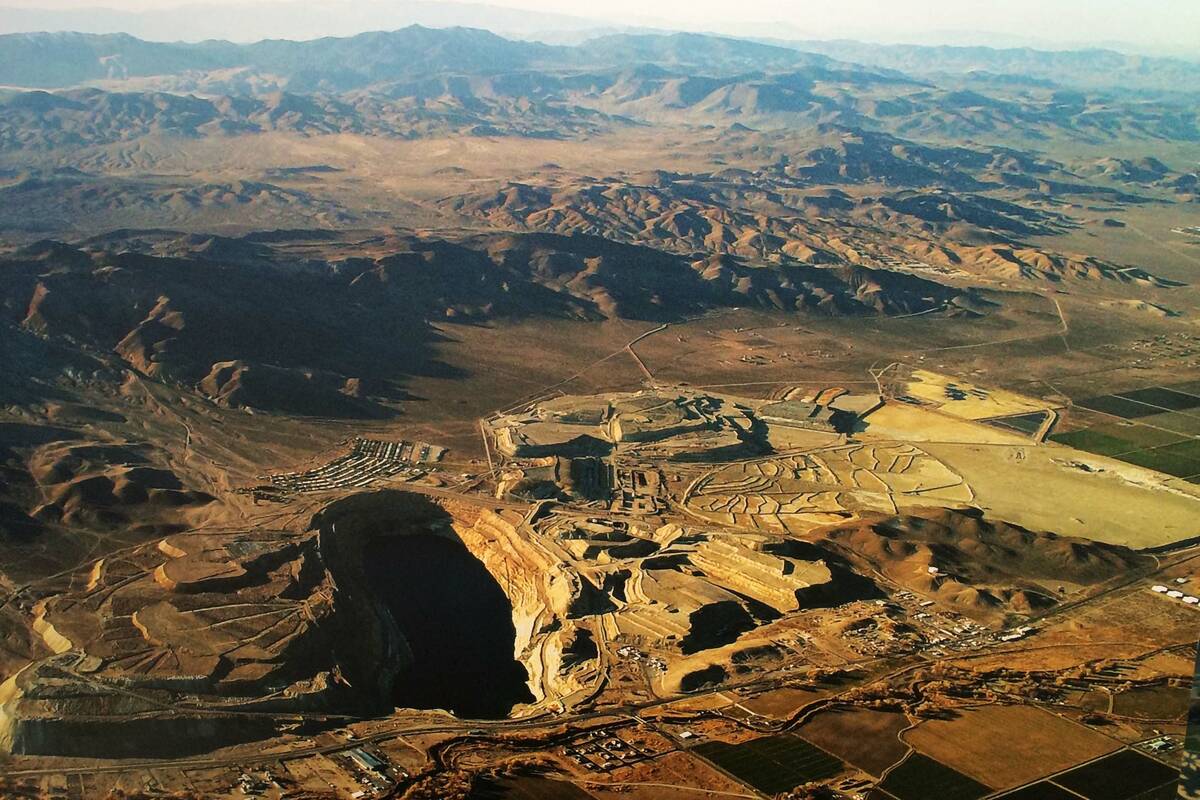Bill takes aim at pit lakes left by mining operations
Environmental advocates and the mining industry sparred in Carson City on Monday over a bill that seeks to ban pit lakes formed by mines across Nevada because of concerns over the lakes potentially contaminating surrounding groundwater.
Assembly Bill 313, sponsored by Assemblywoman Sarah Peters, D-Reno, would require the backfilling of open pit mines once mining companies are done extracting ore and other minerals from the site.
“This bill is really about the responsibility to water. The profitability at what cost, asking for the evaluation of impact to water and the long term costs to our state and our resources,” Peters said. “This is about striking the balance between the cost to our future and the cost to our economy.”
‘About mining cleaning up their mess’
The bill would apply to mining permits issued after Jan. 1, 2024, but allows mining companies to apply for exemptions if they can prove that the requirement would not be feasible or would make the mining operation unprofitable.
Environmental advocates say the proposal is a way to prevent the waste of rural waters, reduce toxic waste runoff and prevent the pollution of surrounding groundwater. But mining companies say the requirement wouldn’t make financial sense for companies and could hamstring one of the state’s biggest economic sectors.
“This is about mining cleaning up their mess,” Patrick Donnelly, Great Basin director for The Center for Biological Diversity, said during a hearing for the bill in the Assembly Committee on Natural Resources Committee. “If a mine, the only way it can be profitable is by leaving a mess for future generations, then maybe that’s not a viable mine.”
Mining industry: Bill would harm companies, economy
The mining industry pushed back on the bill during Monday’s hearing, saying it could essentially stop any future open pit mines from receiving approval going forward.
“This bill won’t protect water quality or the public. But it will put the mining companies out of business and irreparably harm the economy of our state and local communities,” said Joel Donalson, head of permitting for Nevada Gold Mines, the state’s largest gold mining company.
Nevada is one of the biggest mining jurisdictions globally, and today is the fourth-largest producer of gold in the world.
Open pit mines used to extract ores often go deeper than the underground water table, and mining companies continuously pump groundwater in order to keep mining.
Massive open pit lakes
Once mining companies have depleted the ore and are done with the mine, that groundwater will then seep into open pit, forming massive and often extremely deep lakes.
The amount of water that can end up in pit lakes is massive, said John Hadder, executive director of Reno-based advocacy group Great Basin Resource Watch, who helped present the bill during Monday’s hearing.
Hadder said that there is an estimated 1.5 million acre-feet of water — or more than triple the amount of water that Las Vegas used in 2022 — that will eventually end up in pit lakes based on the current permitted mines in the state.
It’s not just wasted water that concerns environmentalists about those pit lakes. The water in those lakes can be toxic due to acid runoff from waste rock as well as other contaminants that can pollute the water in the pit lake as well as the surrounding groundwater reservoirs.
Toxic lake at abandoned mine
One of the prime examples of those concerns rests about 65 miles southeast of Reno at the abandoned Anaconda copper mine.
When the mine’s previous owner, Arimetco, abandoned the site in 2000, it left behind a 90-million-gallon toxic pit lake of uranium, arsenic and other chemicals.
Testing later showed that the toxic water from the mine’s pit lake had seeped into the groundwater aquifer and contaminated dozens of neighboring wells.
Nevada Department of Environmental Protection Administrator Jennifer Carr told lawmakers that the state doesn’t see a need for the added requirements under the proposal.
“At this time we do not believe that there is necessity to create additional policy for reclaiming groundwater because we already protect groundwater,” Carr said.
Supporters of the bill included environmental groups, tribes and progressive advocacy groups. Those opposed to the measure included mining companies and the Vegas Chamber.
The committee took no action on the bill Monday.
Contact Colton Lochhead at clochhead@reviewjournal.com. Follow @ColtonLochhead on Twitter.














